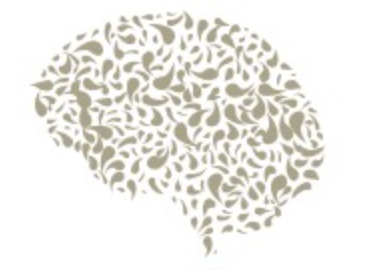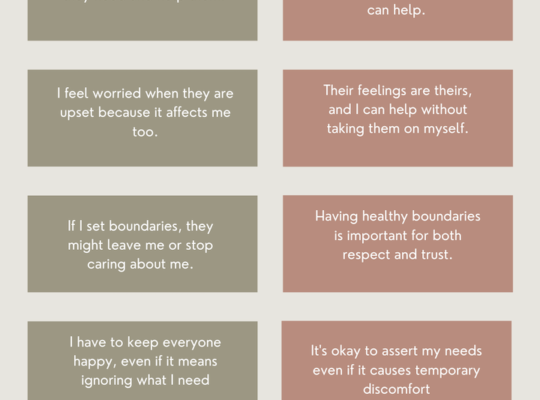It’s wild to think that the way we were parented shapes how we love and connect in adulthood. Our parent-child relationship molds our attachment style, which directly impacts the romantic bonds we form later in life. Whether we realize it or not, the emotional patterns set in childhood echo throughout our romantic lives. Understanding how the parent-child relationship affects our adult connections can be a game-changer in creating healthier, more fulfilling relationships.
What’s Attachment Theory and How Does It Relate to the Parent-Child Relationship?
Attachment theory, developed by psychologist John Bowlby, explains how the bond between a child and their primary caregiver influences their emotional development and future relationships. Essentially, the parent-child relationship lays the foundation for how children will interact with others as adults. Bowlby’s research showed that children who form secure attachments with their caregivers are more likely to develop healthy relationships in adulthood.
But what exactly is a “secure” attachment? It’s a bond that is characterized by emotional availability, trust, and consistency. When children experience a secure parent-child relationship, they grow up feeling safe and confident in their ability to form emotional bonds. On the other hand, an insecure attachment develops when caregivers are inconsistent, neglectful, or emotionally unavailable. This insecurity in early relationships often carries over into adult romantic bonds, where it can create challenges in intimacy, trust, and emotional connection.
The Parent-Child Relationship: The Roots of Attachment Styles
The attachment style formed in childhood is influenced by the parent-child relationship.
- Secure Attachment: If you grew up in a parent-child relationship where your caregivers were responsive, consistent, and emotionally available, you likely developed a secure attachment style. People with secure attachment styles are comfortable with intimacy and trust. They handle conflict constructively and feel emotionally safe in relationships. They’re not afraid of vulnerability and are usually open to building strong, healthy emotional bonds.
- Anxious Attachment: If your parent-child relationship involved inconsistent caregiving – maybe your caregiver was sometimes loving but distant at other times – you might develop an anxious attachment style. As an adult, you may struggle with insecurity in relationships. You might fear abandonment and seek constant reassurance from your partner. This can create tension, emotional dependency, and anxiety in romantic relationships.
- Avoidant Attachment: When a parent-child relationship is characterized by emotional unavailability or neglect, a child may develop an avoidant attachment style. As an adult, those with avoidant attachment often feel uncomfortable with intimacy and may have difficulty relying on others. They value independence and may struggle to open up or share their feelings. This avoidance can result in emotional distance and difficulty in forming deep emotional connections with romantic partners.
- Fearful-Avoidant Attachment: This attachment style is a mix of both anxious and avoidant styles. Children who experience trauma, abuse, or inconsistent caregiving often develop a fearful-avoidant attachment style. As adults, they may crave intimacy but fear getting hurt, creating a push-pull dynamic in their relationships. They may want closeness but push their partners away when things get too intense, leading to instability and emotional turmoil.
Parent-Child Relationship and Its Lasting Impact on Adult Romantic Bonds
So, how does the parent-child relationship affect romantic relationships in adulthood? The answer lies in the way attachment patterns formed in childhood continue to influence emotional dynamics in later life. If you grew up in a secure parent-child relationship, you are likely to approach relationships with a sense of trust and confidence. You know that love can be dependable, and you’re not afraid of opening up emotionally.
However, if you experienced emotional neglect or inconsistency in your parent-child relationship, you may struggle to trust your partner, fear abandonment, or avoid closeness. These behaviors are rooted in your early experiences and often play out unconsciously in adult relationships. You may find yourself seeking out relationships that mirror the emotional patterns of your parent-child relationship, whether that means choosing emotionally unavailable partners or becoming overly dependent.
The parent-child relationship also influences how we view conflict in relationships. If your parents modeled healthy conflict resolution, you’re likely to approach disagreements in a more balanced, constructive way. On the other hand, if your parents avoided conflict, were emotionally reactive, or didn’t model effective communication, you might struggle to resolve conflicts healthily in your adult romantic relationships.
Healing and Breaking the Cycle: Therapy and Self-Reflection
The good news is that we don’t have to be stuck with the attachment styles we developed in childhood. Therapy and self-reflection are powerful tools in understanding how the parent-child relationship shaped our emotional needs. Through therapy, particularly attachment-based therapy, we can identify the patterns that are influencing our romantic relationships and work to heal old wounds.
Attachment-based therapy focuses on recognizing how the parent-child relationship impacts our ability to form secure attachments as adults. By understanding the root causes of our attachment insecurities, we can learn to build healthier relationships. This process might involve confronting painful memories from our childhood or learning new communication and emotional regulation strategies.
Beyond therapy, self-reflection is also essential. Reflecting on past relationships can help us identify patterns in how we connect with others. Are we seeking out partners who repeat the emotional dynamics we experienced in childhood? Do we feel anxious, avoidant, or fearful in our relationships? By being mindful of these patterns, we can consciously choose to break the cycle and build healthier emotional bonds.
The Power of Secure Attachment in Adult Relationships
As we work to heal and build secure attachments, we create more stable, trusting, and fulfilling romantic relationships. Secure attachment isn’t just about feeling emotionally safe; it’s about having the capacity to be vulnerable, communicate openly, and resolve conflicts constructively. It’s about building a partnership based on mutual respect, trust, and emotional availability.
Adults with secure attachments are better equipped to navigate challenges in their relationships. They don’t fear emotional closeness, and they know how to handle the ups and downs of life with their partner. A secure attachment fosters a deep sense of connection and intimacy, which leads to stronger, longer-lasting relationships.
Healing the Parent-Child Relationship Patterns
The parent-child relationship is the bedrock of our emotional lives. It shapes how we connect with others, how we form romantic bonds, and how we navigate conflict and intimacy. However, understanding how our early attachment experiences affect us as adults can be incredibly empowering. By acknowledging the impact of our parent-child relationship, we can begin the work of healing and creating the kind of relationships we’ve always deserved.
It’s possible to break free from old patterns and build secure, loving relationships. Therapy, self-awareness, and a commitment to personal growth can help us overcome the emotional baggage from our childhood. In doing so, we create a more fulfilling love life based on trust, openness, and emotional connection. Ultimately, the goal is to create romantic bonds that reflect the security and emotional support we needed as children. It’s what we were meant to feel as kids. And now, we can create that in our adult relationships.








